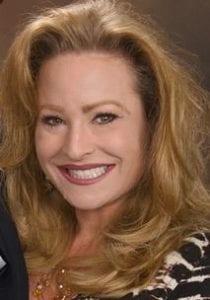
One of the most important processes for any investor, especially when you are involved in notes, is due diligence. Due dilligence lets you know your risk and helos you figure out if you should or shouldn’t take on a deal. The best part of mitigating risks through due diligence is to maintain control and learn the different exit strategies available for you. The one other benefit that due diligence gives you is the length of investment time which gives you control over the outcome of a deal. All this control comes from that fact that through due diligence you know your “what.”
Listen to the podcast here:
The Sexy Side of Double D’s (Due Diligence) with Paige Panzarello
We’re with Paige Panzarello of the Cashflow Chick. We are going to learn about the sexy side of due diligence.
Yes, the sexy in double D’s. That’s what we’re going to be talking about is due diligence. One of the most important processes that you can go through when you’re involved in investing in any real estate and especially when you’re involved in notes and non-performing notes. I’ve been a real estate investor for over twenty years. I’ve been involved in about every form of real estate investing there is. I have literally gone from buy and hold, owning multifamily to owning my own construction company. I had 36 employees at one time. We held all of our licenses. We were building our own projects and other people’s projects. This was in the early 2000s. I had a huge payroll every week. As successful as I was, I was working myself into an early grave because I was working seven days a week, eighteen hours a day, and the stress levels was pretty high. Then we got to 2007. I saw the crash coming because I’ve been involved in real estate for so long. I thought that it was not going to happen to me because I was only encumbered about 10%.I have lots of assets. I was only encumbered 10% and I had established relationships with my lenders for our own projects and established relationships with the people that we were building their projects.
I didn’t think that 2007 was going to happen to me. I was wrong. It happened to me. It happened right on my head and it was devastating. I ended up losing literally everything. It took me three years to clean up the mess. I had to tell 36 employees and their families that we could no longer pay them because those that owed us money could not pay us. I had to sell all of my assets and all of my liquidity. I’m blessed that I didn’t have to go through and complete a bankruptcy process. I had enough assets that I could sell everything and pay all the people that I owed. Three years later, I walked away having lost everything and it equated to $20 million. I lost $20 million in 2007 to 2010, which was devastating. It ended up being a blessing in disguise for me, and that sounds strange to people losing that amount of money being a blessing, but it was because I learned from it. It was a difficult learning experience, but I learned from it. I went away from real estate for a couple years to re-gather and regroup, but it allowed me to come home. I was in Arizona with no family and no friends. All my family and friends were here in California. I was literally married to my job, my company, and my businesses.
When that went away, I thought, “Now what?” I came back home, I met my husband and got married. I was always entrepreneurial. I had some small little businesses on the side and my husband looked at me one day and he said, “Paige, what are you doing? We need to be back in real estate. That’s your passion. You love people. We need to go back into real estate,” so we did. I’m back stronger and better than ever. I tell that story to people because it’s important when I speak that I try and convey to people to understand what your ‘what’ is. That experience molded me as an investor. I know what my risk tolerances are because of that. I know the parameters, the risk that I’m willing to take and not willing to take. Take a step back, breathe and learn about yourself and who you are as an investor, and what your ‘what’ is. What are your risk tolerances? Do you need chunks of cash? Do you need streams of cash? Do you need both? Are you in a position where you can risk a little bit more or not risk any at all? Take time to develop who that is and when you have at least a framework of that, then you back that up by education. Now, you’re in a great position because it allows you to mitigate risk. That’s something that we’re going to talk about as we’re going through the due diligence process.
I came back stronger than ever. I did fix and flips. Gathering myself again, and as I was doing the fix and flips, I started investigating notes and non-performing notes. I was fortunate that my mentor in this space became my business partner and we’re doing great since then. I love this space. It combines my two passions and that’s helping people in real estate and being profitable. The best part is that we can mitigate that risk by our due diligence and maintain control. There are lots of different exit strategies that are available in this space. If we do our due diligence well, we’re going to be in a much better position than if we throw something against the wall and hope it sticks. Don’t do that with money in real estate.
There are plenty of investors out there that do that and this is your hard-earned money or somebody else’s money and that should be taken very seriously. You work hard for money and other people work hard for their money. Take the time, educate yourself, and team up with people. If you need a support system because you’re not quite sure of your footing, reach out. There are lots of people that are available to you. Scott is one of them. He’s wonderful in terms of being available, answering questions, and giving content. I fancy myself as following in those footsteps because it’s important to pay it forward and that’s part of what I’m about. As such, we do a workshop but that’s our pay it forward as well.
Secret number one, what does due diligence give to you?

Due Diligence: Knowing your ‘what’ is your key. That’s how you control.
You have control over how much money you make and the reason that I say that is because knowing your ‘what’ is your key. That’s how you control. You control by knowing your ‘what’. What your purchase and sale price is and how much you’re going to exit that note for because you’ve done your due diligence well. There are a lot of investors that want a deal desperately that they’re willing to do anything in them, manipulate the numbers to conform to making it a deal. We can do that, too, but we don’t want to do that here. You make the deal conform to your criteria and if it doesn’t, then please walk away. Exercise your control. Length of investment time, that’s another thing. You can control the outcome here. You can control if you want a short-term investment or a long-term investment. You can do a combination of the two when you’re in the note space. Due diligence is going to give you the keys to determine is this going to be a long process if we have to go through foreclosure or is this going to be a short process if we have to go through foreclosure? Traditionally, judicial foreclosure states are a little bit longer in terms of timeframe. Know what your ‘what’ is. If you don’t want to be involved in a foreclosure that’s going to take three years or four years, if that doesn’t fit into your parameters as an investor, don’t invest in that state.
We don’t invest in that because it doesn’t fit within our parameters and our investment criteria. We will avoid states like New York because it doesn’t fit in our timeframe. That’s our control. We’re mitigating our own risk because we’ve taken control by saying, “No, we’re not going to do that.” Even though there might be some great deals in New York, I’m sure that there are, just not for us. You can create chunks of cash. You can create strains of cash. You can do both in this space. If you get a note that can re-perform and you work with your borrowers to stay in their home, then you’re going to be able to generate not only a chunk of cash but monthly cashflow for as long as you like. You can work with your borrower to have them come in with a reinstatement fee because in the non-performing space, they haven’t been paying for a while. You negotiate your deal to help them, but at the same time, require them to put a little skin in the game. Also for us, we don’t do full blown modifications right off the bat. We have trial payment plans. If the borrower defaults again, then we have options that are available to us and we haven’t given up our rights. Chunks of cash, streams of cash, only in this space and in a shorter period of time, so know your ‘what’.
Exit strategies. We have exit strategies unlike any other in any other form of real estate investing. When you’ve got a variety of different avenues you can take, no matter what the market does whether it’s real estate market, stock market, economic, geographical, any of those job markets, when you’ve got these many exit strategies available to you, you certainly can mitigate your risk and you have a lot of different avenues as opposed to some of the other forms of real estate investing. I love notes because there’s flexibility and control if you’ve done your due diligence well. Another thing, we are not location specific. I and my partners, we invest in notes across the country. I can be anywhere in the world and do this business. When I was in Arizona with my construction company, I had to be in Arizona. Anybody that does fix and flip for the most part, unless you’ve got great teams out of state, you’re location specific. You have to be in that area, maintain, and watch. In this space, as long as you’ve got a phone and an internet connection, you can do this business from anywhere in the world. That, to me, says freedom.
Keep that in mind and knowing who you are as an investor and your ‘what’, is that important to you? To me, it’s important, but it might not be important to others. Stick to your guidelines. You set them and stick to them. Don’t be desperate for a deal that you’re going to make your due diligence and your numbers conform and tweak them such that it creates a deal. We can all do that, but don’t do that. That’s how you get hurt. Set your guidelines and then stick to them, and you’ll find that you’re going to be a whole lot happier as an investor and as a person on the whole. It gives you more freedom and more control. You can do this business anywhere in the world and hold it all.
Secret number two. We want to know what due diligence will give you and how it will give you virtually risk-free investing?
I often will say that there is no such thing as a bad note, but there is such a thing as buying notes badly. If you don’t know the steps, especially in this space, I like to say that buying notes is front-end loaded. When you buy a fix and flip property, you do a little bit of due diligence, and then the heavy lifting comes in the middle to the end of the process. It’s the reverse in note investing. The heavy lifting is front-end loaded. That’s where a lot of your time is spent. In doing your due diligence, making sure you’re dotting all the I’s, crossing all the T’s, and making sure that you know the questions to ask. If you don’t, then you ask others, “What questions should I be asking or does this make sense?”You rely heavily on your team. It’s nice because it’s front-end loaded for your due diligence and where you’re spending your time and your effort, and then you manage your managers. You hand it off and you manage your managers. Definitely no bad notes but there are such a thing as buying notes badly.

Due Diligence: Definitely no bad notes but there are such a thing as buying notes badly.
Knowing your ‘what’, super important here. Here are some things that I’m going to give you in terms of criteria that are important for us as note investors in our business and perhaps may or may not be important for you as budding note investors. Property evaluations, important that you use multiple sources. We start out with an online sweep. If anybody’s ever used Zillow, you start there and move on swiftly. Please do not rely on Zillow for the actual, rock solid comps or evaluations. If you do, you’re going to be setting yourself up to fail. Zillow is often wrong. It does have its uses. There is some valuable information that you can get from Zillow. Property identification numbers can come from Zillow. Market reports can come from Zillow. All of those things are some great things, but when you’re talking about evaluating the actual property that is the collateral that securing your investment dollars, don’t take that risk and just rely on Zillow.
Start there and then move on quickly. What I mean by that is you want to engage, unless you’re a realtor, but even unless you’re in that area, I would engage a realtor. Call up a realtor. We have a big network of realtors that we work with that have been tremendous because we’re repeat customers. If we’re not in that area, we call up a realtor, we explain who we are. We don’t ever lie. Please don’t ever lie to a realtor. Their time is valuable. Let them know that you respect their time and they will work hard for you. Recognize that if they go above and beyond, I have been known to send them a gift basket or I’ve been sent them a Starbucks gift card for going above and beyond, and trust me, they will be with you for life. You call them up and you explain I’m a note investor. “I’m looking at a note that’s secured by a property that’s local to you. I’m not an expert in the area, you are. Would you mind taking a few minutes of your valuable time and driving by the property, taking some pictures, and giving me a valuation?”That’s really important and 75% of them will say yes. Sometimes, they say no. Sometimes, they’ll say, “I’ll do that for a fee,” and I simply explain we’re not in that stage right now. We’re in the preliminary stages of doing our due diligence and we’re not in a position to be paying fees yet.
However, if they take their valuable time to help us, we’re more than happy that if we should end up with a property as an REO either through foreclosure or a deed in lieu of foreclosure, we’ll sit down and have a conversation about that realtor listing the property for us. There’s something in it for them. Make sure that you’re respectful of people and their time. The biggest piece is that you need to know the value of the property that is collateralizing your loan. We only invest in first position for me. Others do well in second position note investing. They’ve been successful. It’s not something for me, I only invest in first. In the first position, we’re the ones that get paid first and the security for us, mitigating risk is knowing the value of the property that is the collateral for our investment dollars. Make sure that you know your numbers and don’t let a realtor give you a $30,000 range, more like $5,000. A $20,000 to $30,000 range on values that are between $50,000 and $200,000 can be pretty significant. When you’re talking about a house that’s only worth $80,000 and they give you a $30,000 range, that’s a massive range. Be sure that you understand and go back to them and say, “Can you narrow this down for me? Let’s talk about that.”
Also verify a structure is present on the lot. Please do not only rely on Google Earth. I know some note investors that this has happened to, whether it’s a realtor, a friend, an associate, a family member, whoever. You always have boots on the ground and they always go by that property and take pictures, so you have an as is, where it is right here and now, current, real time photos. You know that there is an existing structure because if you just rely on Google Earth, it’s possible that something has happened in the interim from when the photos were taken with Google Earth to today’s date. Please be careful when you’re looking at Google Earth. I have to say that this is not actual. This can and does happen. Unless you have boots on the ground, makes sure that you’re understanding and that you’ve got real time photos that a house is there and what conditions it’s in because sometimes we can’t go inside the house. Unless you’ve got a creative realtor and we have a vacant property, but oftentimes we can’t go into the house. Use your best judgment. If you see that a house looks like it’s got some deferred maintenance on the outside, it’s likely got some deferred maintenance on the inside. If it looks nice on the outside but there’s maybe some high weeds, you can guess that the inside’s going to mirror what you see on the outside, so take heed with that.
Knowing your ‘what’, let’s talk about it some more. You want to verify any amount of delinquent property taxes, if there are any. Property taxes do survive a foreclosure. You are going to be responsible if you buy the note. You foreclose on that note and you end up with the property as REO. If there are delinquent taxes, you are going to be responsible for them. Please also do not rely just online. There are some counties that you have to rely on online temporarily, as a first sweep, but most counties, you can call them. I strongly urge that you do that to verify any delinquent property taxes and verify balances. Sometimes you’re going to see that a county will tell you, “There’s a zero balance.”
If you don’t take it one step further and ask about that zero balance, “Who paid it?” You need to verify who paid the property taxes. “The owner of record paid it.”“Such and such, ABC Corp paid it.”Now here’s why you ask that question. There perhaps was a tax lien sale, or even a tax deed sale, which is scary, but a tax lien sale and some other third party bought that property tax lien. It’s going to show online and show in the computer as a zero balance because there are no property taxes that are due and owing, but if a third person bought it, they have a right to foreclose on that tax lien after a certain period of time. If you don’t ask the question and know that there’s a third party involved, what’s going to happen when they go to foreclose their tax lien and if you’ve taken that property back either via deed in lieu of foreclosure or as an REO after it went through foreclosure and didn’t sell to somebody. You’re now on the hook and that can be a big oops.
Ask the questions. Know to ask the questions and make sure that you verify if there’s delinquency, how much it is, and if it’s a zero balance. Who paid it? Ask me how I know that one? It happens to the best of us. It wasn’t too big an oops, but it does happen to everybody. If you’re in this space long enough, that it does. Same thing with liens. You want to make sure that there’s no municipal liens, sewer liens, mechanic’s liens, any kind of liens or junior loans that are behind you or judgments that are behind you. I buy first position and oftentimes, there’s a second behind me, meaning they’ve taken another mortgage payment, a mortgage loan out, but it’s in the second position. They’re junior to us.
Sometimes there’s judgments and know the differences between the judgments, what judgments are there and if they do apply. The reason being if you end up taking the property that is securing your loan back as a deed in lieu of foreclosure, or in a foreclosure that doesn’t sell to a third party, you’re going to be on the hook to pay those judgments and those liens. If you know what they are, if you’re aware of them, the dollars make sense and the deal makes sense for you to proceed, don’t be fearful because there are liens. Be fearful if the liens prevent the numbers from working, but if you incorporate those liens into your numbers and the deal still works, don’t be fearful of those liens. Go forward, but you need to know that they’re there.

Due Diligence: If you incorporate those liens into your numbers and the deal still works, don’t be fearful of those liens.
Really important in your ‘what’, know the asset type. Know what kind of property is going to be securing your invested dollars in this note, whether it’s a single-family residence, a land, a condo, a mobile home. There are certain risks that are associated with each of those. Myself and my partners, we don’t typically invest in condominiums. We don’t typically invest in mobile homes. The reason why is that condominiums typically are harder to sell in a down real estate market than are single families, because there’s Homeowners Associations involved. Mobile homes for us, we don’t invest in notes that are secured by mobile homes. This is just for us. There are plenty of note investors that do invest in mobile homes and they do phenomenally well. For us, we don’t because mobile homes are harder to finance if you can get financing at all. You’re narrowing your buyer pool. For us, we want our buyer pool to be as big as possible. We don’t typically invest in assets that are securing our notes that are condos or mobile homes. Same thing with land. We don’t typically invest in notes that are secured just by land, but that’s just us. Know those things and determine what it is that is important to you.
Verifying occupancy, really important and sometimes the banks don’t get this right. You need to know is the property occupied, and then who is occupying it? Oftentimes we’ll get a note that is an investment property and a tenant that’s in there. Now we have to make sure that we understand exactly who we’re dealing with and what our recourse is if the property is occupied. If it’s our borrower we get excited because we like to help keep our borrowers in their homes and work with them through a trial payment plan and hopefully permanent modification to keep that borrower in their home, and because we do our due diligence well it allows us to buy that note and that asset at a deeper discount and give us the cushion to work with our borrowers. That’s my favorite exit strategy. Keep that in the back of your mind. Banks understand when you get a tape and I’m sure that most of you know that a tape is a giant Excel spreadsheet that lists all the assets that the bank or asset manager has for sale.
It gives you a bunch of data points that you have to research and do your due diligence on. Sometimes the tapes are a little bit old and they haven’t been updated for a few months and sometimes the banks flat get it wrong. The banks will often tell you, “This is occupied or owner occupied,” and oftentimes it’s not occupied. Sometimes the banks will tell you it’s vacant and sure enough, it’s occupied. We need to find out who that occupants is. Trust but verify. Always trust but verify. Rely on the internet temporarily and then do boots on the ground. The internet revealed that this is a great looking duplex and the bank said, “Yes, owner-occupied,” or not. The aerial shot when I exited the street view of the same property shows the sidewalks there. The house is gone, so trust but verify. Always trust but verify.
I don’t know about you, Stephanie, but our first call, we wire funds to buy our quotes and our first call is to the insurance guy. We usually force-placed the insurance we do. That’s our protocol and then if we find out that the borrower has insurance, we’re able to get a refund. Even if we weren’t able to get a refund, those few dollars that it’s going to cost us to have that insurance in place for a month is well worth it. Peace of mind. I’ve known note investors that have relied strictly on Google Earth and they’ve bought a note based on the Google Earth pictures thinking, “It’s only a month old,” and sure enough, fire happened and boom the property is gone. This is on you to do your due diligence well. I am one of those and I know Stephanie and Scott are too, hammer people on do your due diligence. Don’t skip steps. Please. It’s too important. Your money’s too important. More to the ‘what’, you want to verify number of bedrooms and bathrooms. We typically don’t buy any notes that are secured by assets that have less than two bedrooms and one bathroom, strictly because they’re harder to sell. We don’t want to narrow our buyer’s pool; we want to increase it, any event that we end up with a property in our portfolio.
We want to verify square footage, for us same thing. We typically don’t buy any note that has a house that is less than 850 square feet. If you say 1,500 square feet, that might be great for you as an investor but understand that a lot of these homes in Middle America are much smaller than 1,500 square feet. Choose a parameter that’s going to be realistic for you to be profitable, but not so much that you’re going to end up narrowing your field and missing out on some great opportunities. Square footage is important. Verify the year built. A lot of these homes are built across the country in the early 1900s.A lot of them have knob and tube, which is fine. There’s nothing wrong with knob and tube. I understand that some homes that have knob and tube are going to be harder to sell, especially if you’ve got an FHA buyer.FHA requires that knob and tube be removed completely. That means rewiring a house, which can be costly and affect your bottom line. Understand your year built. Make sure that you know that. You want to verify the size of the lot. If you’ve got conflicting information, you might have some problems in terms of easements.
You might have some problems in terms of a lot that’s been subdivided. You want to make sure that you know exactly what the lot size is and that you’re being taxed through the assessor or that property is being taxed through the assessor, and that those records match because if you don’t, you’ve got a big conundrum. Are you overpaying or underpaying? Do you not have easement rights? All kinds of things can go wrong, so verify your square footage and your lots. You also want to make sure that you know the county name, which will be able to give you a wealth of information. County records offices, the code enforcement, all those things and you’re going to call all of those people to verify if there are any liens judgments, who runs the sewer. Oftentimes counties or cities will have their own sewer. They handle the sewer district instead of a private company handling the sewer. Make sure for that. I had a note and borrower was deceased and there was an outstanding sewer bill. It was pretty hefty and we had to pay it. They didn’t care that the borrower was deceased. It runs with the property. Know the questions to ask and knowing the county name is going to give you the direction to go in that.
Population. Knowing the county name, you can use some tools like BestPlaces.net to find out what the county population is. As an investor, it’s important because we don’t typically buy notes that are secured by homes in county populations that are 50,000 people or less. It narrows your buyer pool and we don’t buy in rural counties. There are plenty of investors that do, we don’t. You need to know that information and that will give you the direction and the way to start. You need to know about a crime rates. You need to know about not only property crime but violent crime. You don’t want the Joker living next door to you, having violent crime. You don’t want properties in war zones. They’re harder to sell. I’ve had realtors, when we’ve done our investigation that will tell me, “I won’t go on that street in the daytime.” Be careful and rely on those people that are giving you the information. Don’t fall in love with the house, fall in love with the numbers. This is an actual house I saw in Texas. Talk about property crime. There was not a piece of copper left in the property and clearly, it’s vandalized. You don’t want to be in these neighborhoods, at least I don’t.

Due Diligence: Don’t fall in love with the house, fall in love with the numbers.
You want to know rents in the area and the reason that that’s important is that we want to know if we’ve got a borrower, an owner-occupied property that if the rents are less than their mortgage payment in the area, they’re not going to be incentivized to stay and work with us. If rents are higher than their mortgage payment, we have some working room there. They’re going to probably want to stay in their home and work with us because it’s going to cost those more to leave than to stay. That’s another tidbit of information that you need to know. Comparables is a big one. Comparables is an art. There are realtors that are out there that are great with their comparables, and then there are realtors that are not great with their comparables. Be sure that you’re going to have comps that are going to show that as-is value versus the ARV value. ARV stands for after repair value. You don’t want to mix the two because they’re completely different. To get to the ARV, you have to fix things. The as-is is as it sits right here and now. If I have to sell it, and if it comes back to me and I have to sell it, what can I get for it? If the numbers work there, then you’re doing well. Don’t let them mix.
Make sure that the data inputs are as similar to your target and your subject property as possible. You don’t want comps that are two miles away. You don’t want comps that if you’ve got a 1,200 square foot home that the comp the realtor gives you is 2,500 square foot. If you’ve got a two-bedroom and one bath, you don’t want to comp it to a four bedroom and two bath. The data inputs need to be similar. They don’t have to be exact, but they have to be similar. Make sure that you follow-up with your realtors and that they’re giving you real comps and that they’ve taken time to look at the area and look at your data inputs. The third secret is about control. Due diligence gives you your knowledge. Don’t skip steps. Don’t get lazy. Do all of it. Knowledge is power. That saying’s been around for a long time. Knowledge is power and you get your knowledge by due diligence. Power gives you control. The more control you have over your own destiny, the better off you are because control mitigates risk. For us as investors, mitigating risk is huge. I like to say that I’m risk adverse. Every investment, there’s risk. There’s risk every day in our lives, but I’m not going to knowingly go into an investment with huge risks that I have no control over, which is why I love notes because I get the best of both worlds.
Profitable investing with mitigated risk to me is sexy, and I hope you feel that. Be sexy but be smart sexy. The only way to do that is by knowing the due diligence to perform, following all the steps and discover the sexy. Discover the sexy in due diligence. A lot of people don’t like it. They think it’s tedious but understand that that gives you control, and you can be smart sexy. For me, the profits that come because we’re smart sexy and because we’re helping people is tremendous. I get the best of both worlds. That’s a little bit about me. I know Scott mentioned in some of his broadcasts that we do teach a workshop. I’m not trying to sell you anything. We are full-time note investors. I’m not an educator per se, but it’s part of my pay it forward. I want to help people be protected in their investments and the reason for that is because I went through it in 2007, because I lost $20 million. I don’t want you to lose $20million. I don’t want you to lose $2.Learn from my mistakes. Learn from my skinned knees. Learn from Scott’s skinned knees.
If you’re interested, we are having a workshop. If you’re in the Tampa area, in the Florida area or anywhere near there, we are having a Building Wealth with Notes workshop. It’s three days, hands on, live. We’ve got guest speakers that are coming in. We’ve got note sellers, so we’re going to be able to give you contacts and you’re going to be able to network full time with note sellers. We’ve got many great speakers and a surprise guest. Hands-on experience, we teach you and then we practice with you. We’re not going to bark at you all day long, flood you with information and then send you off on your way. We’re going to have you role-play with us. We’re going to have you work with us and be able to practice and get comfortable with it. We’re going to call counties and start talking about asking them the questions about taxes and practice that stuff. We’re going to look at actual collateral files, actual tapes. You’re going to break into groups and start doing some of your own due diligence, which is fun and exciting.
The networking is phenomenal. You’re going to be in a room with other investors. We always like to say eight hours, but it usually ends up being ten. There’s something about being in the room and I strongly encourage anybody that’s looking to go into notes. Number one, to educate yourself. I don’t care how you do it, please educate yourself. I want to add in the hands-on and the networking opportunity, go to a live event. If you want more information, go to BuildingWealthWithNotes.com/NoteCAMP and you get $98 off. Plus, you get to bring a guest for free. We’re going to feed you all three days network with you all three days, hands on, and it’s a tremendous experience and we hope that we’ll see you there. If you can’t come to Tampa, if you’re more on the West Coast, I’m in California. We have two others later in the year, one coming up in July and one in October here in California, and that Note CAMP link will also work for that and we’ll extend that to the California events as well.
We had BuildingWealthWithNotes.com/NoteCAMP and they can bring a guest $98 off the ticket.
They get to bring a guest for free and we feed you all three days. We want to make it as amazing for you as possible, so we take strides like Stephanie and Scott do to put on an amazing Note CAMP and I’m thrilled to be here. Thank you both for having me and I know we’ve got some questions. You can also book a 30-minute appointment to chat if you have something that you’re struggling with, you need a question answered or need some help. Reach out to me through the website and I’m more than happy to get on a call with you and answer any questions as well.
We’ve got a question. “How do we know if taxes have been purchased and if we can pay the lien holder to prevent foreclosure? Will the county give us that?”
Oftentimes, you can get it from the county. If you ask the question, if it’s a zero balance when you’re calling the county to verify delinquent taxes. If they say it’s a zero balance you want to ask, “Has there been a tax lien or tax deed sale?”They will tell you yes or no. If there has been a tax lien sale, then you can ask, “Who was the buyer?” Generally you can find that that buyer, if the county doesn’t have full blown information, you can find that buyer by doing skip traces. Your loss mitigation team can usually help you with things like that if you don’t have your own account to do that.
Also, there’s a certificate that’s recorded when there’s a sale like that. You go to the recorder’s office and you find out where the mail is being sent. Then you reach out to them and oftentimes there is a redemption period. You can contact the buyer and find out where you are in the redemption period and how much it’s going to cost you to pay off and redeem that tax sale. Oftentimes, the redemption period comes close and sometimes it gets bypassed. Again, don’t be afraid as long as you can reach out to that buyer of the lien and say, “The redemption period has passed. Are you still willing to sell it back?” Oftentimes, they’re going to say yes, but those are a couple different ways that you can find out the information and contact that buyer of the lien.

Due Diligence: Due diligence gives you your knowledge. Don’t skip steps. Don’t get lazy. Do all of it. Knowledge is power.
The lien holder, it’s often a different strategy for them, so a lot of times they do want to sell it back. They don’t want to keep the house. It never hurts to ask. Always ask. We have a question. “How about mobile homes permanently on land and tax rolls?” For things that you focus on buying or not buying.
We stay away from mobile homes altogether. We have had a couple of commercial notes come across that are for mobile home parks. That’s a little different. Those we will look at but mobile homes as a single unit, living house for somebody, we generally avoid those and that’s just for us. It doesn’t fit our parameters because we have found that it’s more difficult for somebody to get financing even if it’s permanently affixed to the ground. The structure can be picked up and moved away according to lenders so we avoid them, but that’s our own criteria. That’s our ’what‘.
For everybody, that’s different. You’d know some people that invest in mobile homes, it’s like storage. We know people that invest in that all-day long. It’s different for everyone. It goes back to figuring out your ‘what‘, your ‘why‘, and where your focus is and if you stay in that range.
You mentioned your ‘why‘, because we’re all investors for a reason. We all have our ‘why’. I’m going to stress that everybody’s got their ‘why’, but if you know your ‘what’, you can get to your ‘why’ faster. You can, but you need to know your ‘what’, so take some time to figure out what that is.
It changes. It does as you grow, it changes. You can start out over here and years later. I’ve seen people have completely different models, people dial in their model a lot more efficiently and they’re like, “No, this is specifically what I do,” because there are many different notes out there. They can be choosy, and it works.
I love what you said about you can’t make your numbers informed for deal. It’s like pulling blood out of stone, you can’t do it. It’s going to hurt you and the people that you’re working with and it’s not worth it. There are many other notes that are still out there and somebody think they’re coming, you’re going to find one that fits your model. If you’re patient, you’ll get there.
There’s a lot of investors like, “Hurry up, got to do it now.” You’re going to put yourself behind the eight ball if you do that.
There’s been a lot of rumors that are going around. There aren’t any notes out there anymore. There’s no more inventory. They’re still out there. The statistics and some of the research that I’ve pulled up for 2017 alone would astound you. The amount of bad debt that’s on the books for banks across the country, secured by residential real estate. It’s astounding. Don’t believe the naysayers. If you’re patient, stick to your numbers and you stick to your guns, you’re going to find a deal and it’s going to be a great one.
We have a question, “I’m a new investor and I’ve been getting tons of information about due diligence and all the ins and outs. Do you have or know of a central location to get all that information or as much as possible?”
Scott gives a tremendous amount of content. It’s true. It’s amazing to me what you two do and the help that you provide people. There’s not a ton of information out there in the traditional forms.
There’s so much of it is different and we can agree. Even from state to state, you can go through and put together a list of every single state’s foreclosure laws and how their taxes run but there’s so many little things that are different. We often dial down into your market that you know you’re going to invest in, then you can create that for yourself.
You want to stick to it but there are options that are available. BiggerPockets is a great resource. Lots and lots of information on BiggerPockets and it’s free. Scott’s got volumes in a library of prior webinars and podcasts, that’s out there. I and our workshop, we drill down to the fine details out there. Take it one step at a time and breathe. You said something about judicial versus non-judicial. What I’m going to do for everybody at Note CAMP is I have an actual list of the judicial versus non-judicial states. It’s interactive. If you click a link, it’ll give you all of the laws of foreclosure for that particular state. “Why don’t I do this? Why don’t I send that to everybody at Note CAMP?” That way, you’ve got it. It’s a great resource to use and that’s one more tool in your tool belt and I’m happy to send that out to everybody.
When you’re going through the break around the tape, you come up with certain parameters and lot of people also in judicial state they’re like, “No, takes the tape down.”From hours, it’s gone to twenty minutes, and it helps.
It can be daunting. The ‘what’ is going to guide you to get through some of that process. You do need to have a system in place also to be able to evaluate these things. Because our biggest asset in this world is time, the biggest asset. It’s the only thing that we have that we cannot get back once it’s gone, the only thing. You want to be able to focus your energy and that’s what focus is. It’s a direction of energy. You want to be able to focus your energy in places that it’s going to behoove you. Don’t waste your time running around chasing things that aren’t going to fit in your ‘what’. We’re fortunate. Joseph, he was my mentor, he’s my business partner. He developed a software. It’s exclusive to us. Nobody else in the world has it. We can take a tape and we can input that tape into the software and based on our preset criteria, it will tell us, “Look at this one, look at this one, don’t look at this one.” That’s exclusive to us. We do give you that tool. We give you the single note version of that tool at our workshop. That’s one of the tools that we put in your toolbox. It will tell you, “Yes, this is a deal. No, it’s not a deal,” in just moments. That’s another thing that you want to start to develop your system based on your ‘what’, because that’s going to relieve too much time being spent in areas that aren’t appropriate and you don’t want to waste time.

Due Diligence: Everybody’s got their ‘why’, but if you know your ‘what’, you can get to your ‘why’ faster.
We have more questions. “Without giving names, where do you get your NPN’s?”
Everywhere. We talk to everybody, and believe it or not, when you start to open your mouth and tell people what you do, and don’t be afraid to do that, be proud of it, you’re taking charge. We’re concerned oftentimes with what other people are going to think of us and we’ve had family members, I know this has happened to me. We have family members will say, “Why are you doing that? You’re going to lose money. You’re going to do this.”Don’t pay attention to them. Tell everybody you know what you’re doing and be proud of it. When they hear that and they see you’re resolved, your shoulders are back and you’re proud of it, they’re going to be interested. They know people and those people bring things to you that you would never guess.
I had a next door neighbor who had a friend that was a bankruptcy attorney. Sure enough, we’ve gotten some notes directly from him because she said, “I’ve got a friend that does that.”Tell everybody, but banks, hedge funds, small regional banks, smaller hedge funds, other note investors, brokers, lawyers, all of it, everybody. Talk to hard money lenders. They know people. They’re in the business of putting notes in place, so talk to hard money lenders. We get them from everywhere and we buy them if the numbers make sense and it’s a good deal, then we buy them.
We have a question, “What work did you do to recover after your losses? Before you got your business partner on board after moving?”
In real estate investing, there were a couple of different things. I still do have this business. I have somebody else running it. I’m a dentist’s daughter and I worked with my dad from a young age. He used to drag me into the dental office during vacation to work in the office, and when I came back home to California after leaving Arizona with nothing, I thought, “Now what?” Because I knew I didn’t want a job, it doesn’t work. I wanted that freedom and I’ve always been entrepreneurial so I thought, “What am I going to do?”I had somebody suggest to me that there was a product out there that is for teeth whitening, and I thought, “That’s in the wheelhouse. Let’s see about that,” so I started a business for teeth whitening and I was a technician in the business for a little while. I became unhappy, put somebody else in place, and went off to do a couple of other things. I came back into real estate investing and I had to build up my reserves.
I did do some wholesaling. I did do some fixing and flipping, and I did that while I was learning about notes. I got those checks and those chunks and I lived with what I needed to live with. I didn’t buy a bunch of junk I didn’t need. I saved, and I took those monies and I invested in myself and my future, and a real estate was the way to go. That’s one of the things that I did, and tax liens and tax deeds. That house in Texas that was a tax deed. A house that I was looking that I bid on. I’ve done about everything there is to do and when I got to notes, angels sang for me. They did. It gives me all of the control. It gives me all of the flexibility. I can generate chunks of cash. I can generate streams of cash. I can do both. I can generate those two things twice in one deal, which is amazing. I can be anywhere in the world and do it, so angels singing. I love it. I’ll never go back.
I usually tell everyone that we have a lot of people that come in from the fix and flip side that are tired of doing this. What’s one of the values doing notes and you can do all of those things on the back end. It depends on what it is that you buy, but it can start out in one direction and you end up selling it, or you have a small rehab on it and you can scratch that itch and then you sell it or you keep it. I know there are a lot of people who do, and I don’t fault them for that. They’re also more centric to their area and we travel a ton.
There are different exit strategies we were talking about. You can do that if you want to on the back end. There’s that control and flexibility that you have. I prefer if we end up with a house in REO or as an REO via either deed in lieu or foreclosure, if it needs to be fixed much more than maybe some paint and carpet, which oftentimes they do, I would much prefer to take that property and sell it to a fix and flipper and carry the paper. I do that a lot. We will take that REO property and we’ll put it out to my network. I have a vast network of fix and flippers across the country, and we’ll put it up for sale and say that we’ll carry the paper. We’ll carry the paper while they’re fixing it. We now generated not only the profit that we’re going to make from the bulk sale, but we’re going to require some points because we’re a hard-money lender. We’re coming in as a hard money lender. We require some points and then we monthly cash flow for a few months at a hard money interest rate and then we sell it to them when it’s done. We get paid off when they finish the flip and they sell it. That’s an exit strategy I would much prefer than swinging the hammer myself or, figuratively speaking, but putting our team in place as the contractors to do it. I love nothing more than to make an ugly house pretty, I don’t like the in between.

Due Diligence: Our biggest asset in this world is time, the biggest asset. It’s the only thing that we have that we cannot get back once it’s gone.
Another question is, “Does it also give approximate time to foreclosure barring BK filings on the list?”
Yes, it does give approximate times. It will tell you what are usual and you will see New York, they say 445 days, so take it with a grain of salt. In terms of don’t stick to, “It says only 120 days,” because you never know what’s going to happen. Each note is different but it’s a general timeframe, but yes it has that on the list that I’ll be sending out.
We have a question. “Paige, given your past with losses at 10% leverage, what’s your philosophy now in having debt? Are you still a risk taker or no on debt?”
There’s good debt and there’s bad debt. I’m not afraid of what I call good debt, so debt that I put in place, to secure an asset that is going to profit me either through cashflow, monthly cashflow or chunks of cash. I’m not opposed to it as long as I do the due diligence well, and I do my due diligence well. I incorporate those numbers to debt service alone, or however it works. If the numbers make sense to me and I buy it at the right price. You get your money, you make your money when you buy and you collect your money when you sell or you exit. If the numbers make sense by incorporating that debt into my portfolio or into that asset and that purchase, then I will go for it. That makes sense to me. To those spending bunch of money on buying things on credit cards or take out at HELOC, Home Equity Line Of Credit, to go spend it on frivolous things does not make sense to me at all.
The debt part and the loss part is more for me as a learning lesson about the value of money, because at that point in time I was young. I was single. I was having fun and I was blowing money like crazy even though I had a ton of money. I was blowing it like crazy and I learned. That’s why I say it was a blessing to me because I learned from it and it shaped me. No, I’m not afraid of debt. I’m not even afraid of risk because I’m in a vehicle, I have the knowledge and I have the team around me. That what little risk there is, in this space, if you do your due diligence well, it’s worth taking and can be mitigated in a number of ways. Otherwise, you’re going to be fearful for the rest of your life and this life is too short. I want to live it, and this is the vehicle to do that. I use the tools in my toolbox to do that and sometimes that requires debt as well.
We have a question. “Do you have a website with REOs for sale?”
No, but you can reach me through my email address Paige@CashflowChick.com and let me know what you’re looking for and we’ll have a conversation because I like to get to know people. I don’t want to send things out that if you don’t want it, I’m not going to waste your time or mine. Contact me and we’ll have a conversation. We’ll talk about what you’re looking for and we can go from there. Scott made a mention a while back about being the stupidest person in the room, and I love that. I love that because it pushes our boundaries and it challenges us to grow. That’s how you grow. If you know all the answers, what’s the point? Challenge yourself to grow because the more you grow and the more you learn, the better you get and the more successful you can be, and especially if you surround that with your ‘what’, you’re in a great place now.
Take that time to develop your ‘what’ list and then put it right next to your ‘why’ list. If you use your ‘what’ to get to your ‘why’, you’re going to find that that path is a lot easier. That that trail is a lot easier than trying to swirl around. If you need chunks of cash then you don’t want to go into a situation where you’re in a buy and hold situation, because that’s monthly cashflow. If you need monthly cashflow, don’t go into fix and flip. Know what your ‘what’ is right now, and a year from now or six months from now after you’ve done a little investing, reevaluate.“Do I need both now or do I need this now?” Then change, but have a clear definition and a clear picture.
For a lot of people, especially that are new and even people that have been doing this for a while, they’ll start out wholesaling. We’ve had people that have come in for classes before and said, “I don’t want to wholesale but I don’t have any cashflow.” There’s not a stigma against it. You could do that, but it builds you to a point where you can jump off and do other things. There’s nothing wrong with that. The people that you look and they’re doing huge apartments and two or three notes, but people forget they didn’t get there overnight.
They didn’t get there always with all of their own money either.
No, they didn’t and they probably didn’t get there without losing something too. Unfortunately, most of us can agree that now it almost is a little bit easier to do notes than it was five or six years ago. There’s plenty of information on it and back to the question about a compendium for education in one spot, or the do’s and the don’ts and all the rules and things like that. You had to go out and hunt that stuff down. Now, it’s a little more readily available. Note investors are still a niche across the board overall. There’s not that many.
Everybody knows everybody. The nice part about it, too, is that for the most part, most of us are collaborators. When you’re in other forms of real estate investing, it’s more competition. Keep things close to the vest and you don’t share and it’s all about competition. In the note space, it’s more about collaboration.
We’ve had abundance mindset that says, “This isn’t for me. This one may work grateful for you. Here, take it.”
Exactly or, “How can we collaborate together? This pool is big. Some of my capital is out. Where are you Paige? Can we collaborate together? Let’s help each other.” That happens all the time and it’s important. Stephanie, I want to go back to one quick thing, something about success. Successful people are successful because they have failed, because they discover who they are as an investor and then they don’t, hopefully, repeat the mistake to learn from it. I don’t like that word ‘failure’ because to me I didn’t fail. I lost $20 million. I did not fail. I had a difficult learning experience, but I learned from it. I grew from it. I’m back and I’m stronger than ever. To me, that’s not a failure. That’s not a failure. Those experiences shape us and they make us successful.

Due Diligence: Successful people are successful because they have failed.
We have a question, “What do your 30-minute consults run?”
They’re free.
Thank you for coming out with us. We’ve got one final question, “When evaluating a tape, what are a couple of the ratios we look at?”
The ratios in terms of strike price versus low DPD versus value. If that’s the question that you’re looking for, it depends. We want to build in the biggest cushion of equity. We don’t ever base our pricing and our offers on the UPB, the unpaid principal balance. We don’t ever do that. We base our offers on the current market value of the property. If we fly solo, meaning we’re only using our own money to acquire that particular asset, we have a little more wiggle room to be more aggressive in our pricing. If we have a joint venture partner that we’re working with, then we need to be as conservative. There’s less wiggle room there because we need to make sure that there is profit for both sides.
It depends on your source too. I hate to be vague. There are some sources that you can still get anywhere between $0.50 and $0.55 on the dollar value of the securing a property. A lot of them though are upwards, up in the 60s, in the 58% to 65%. Some of them want 80%.Those don’t work for me. They don’t and I don’t buy them, so I tap other resources that are more conformed to where my levels are and our profitability remains, and we stick to that sweet spot. Generally right now, we’re running anywhere between 55% and 63%-ish of value.
We’ll go ahead and close for the night. Paige, thank you so much.
My pleasure. Thank you so much for having me and hope to see you in one of our workshops. That’d be great.
Yes, thank you.
Important Links
- Cashflow Chick
- Zillow
- BestPlaces.net
- BuildingWealthWithNotes.com/NoteCAMP
- BiggerPockets
- Paige@CashflowChick.com
- WeCloseNotes.com
- Scott Carson Facebook
- Scott Carson Twitter
- Scott Carson LinkedIn
- We Close Notes YouTube
- We Close Notes Vimeo
- Scott Carson Instagram
- We Close Notes Pinterest
About Paige Panzarello

Paige Panzarello has been in Real Estate as a Landlord, Builder and Investor since 1996, starting as a Landlord and growing from there. Prior to the bubble burst of 2007-2008, Paige founded her own construction company in Arizona that grew to have 36 employees. Her company worked on large scale residential building projects, including townhome and condominium projects, SFR custom builds, and large scale home developments.
After the bubble burst, Paige came back home to California, met her husband, and have since started their own Real Estate Investment Company: Coal to Cash Homebuyers, Inc. Scaling down their focus, Paige and her husband originally concentrated on rehabbing SFR’s 1-4; however, recently they have shifted the majority of our focus on buying Non-Performing Notes. Additionally, they have started down the path for larger scale multi-family 100+ complexes outside of California. They are always seeking to increase our portfolio through Passive Income.
The most important part of what Paige does is to help people. They are truly blessed to combine their two passions: helping people and real estate. Coal to Cash Homebuyers, Inc. was founded to bring help to people (or homes) in distress and beauty back into a house. Their motto is and always will be, “People first, profit second.”
Paige also helps to educate people on the importance of Passive Income, deal evaluation, money management, how to wisely interact with money, and what the heck does a profit and loss and balance sheet actually look like?, by hosting a Cashflow game at least twice a month. This is such a vital part of Paige and her husband’s “Life” education that is too often missing in formal education. She loves to see the “Lightbulb go on” and the excitement of doing a great deal, when one of her group members has that epiphany.

